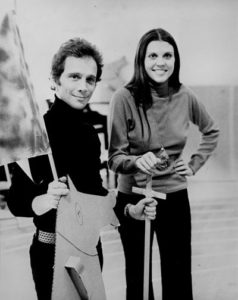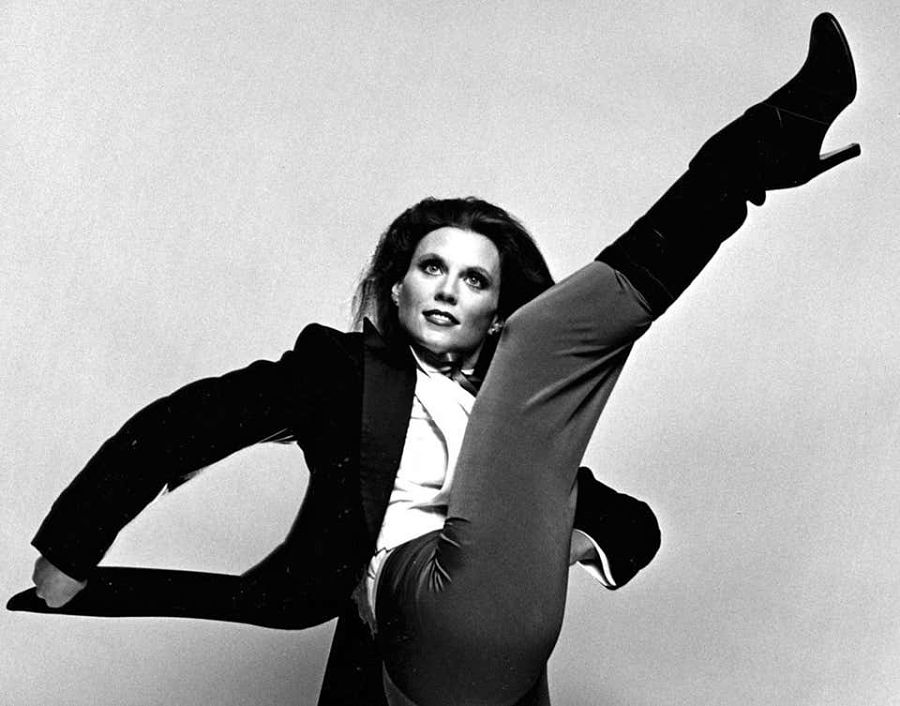And the audience loves me
And I love them and they love me for loving them
And I love them for loving me and we love each other
—Roxie Hart
Backstage at the Richard Rodgers Theatre, I used to love watching Ann Reinking performing “Roxie” from the wings. I always marveled at how she managed to utilize such a giant spectrum of her gifts in every moment of that number. She was knock-’em-dead funny, heart-achingly vulnerable, a little naughty, and sexy as hell. I must have seen her do it 100 times at least, but my awe never diminished. And, lucky for me, I got to play Amos, her husband.
When I was first offered the part in the 1996 Broadway revival of Chicago, I didn’t think it was right for me. If I can’t access a character’s intelligence, I can’t find a way in—and Amos seemed to be, at first glimpse anyway, a genuine dope. Roxie plays him for a fool. Why does he keep coming back for more? At some point it occurred to me Amos’s problem isn’t that he’s stupid. It’s that he’s stupidly in love. Amos sees Roxie as an innocent and a free spirit. He sees her as the sun and the moon and everything magical. To him, she is perfection. To the audience, who every single night fell just as head over heels for Annie’s Roxie as Amos, it all made perfect sense. Who wouldn’t do whatever it takes to keep this extraordinary woman?

The first time I got to work with her was in 1975 in the musical Goodtime Charley. Annie’s Joan of Arc transformed my Charles VII from Dauphin to King simply by believing in him and loving him. She was perfect for the role because everyone I know who was lucky enough to have received Annie’s love—myself included—found themselves utterly transformed by it.
Nowhere was this more apparent than in her mentorship of younger performers, and especially at the musical theatre training program she founded, Broadway Theatre Projects. In the days since her passing, social media has been flooded with remembrances of her casual kindnesses. Gideon Glick told of how encouraging she was even in the face of his own defeat. Melissa Errico wrote about the generosity she showed to her 11-year-old daughter, who had been cast in a role Annie herself had played. Time and time again, she went out of her way to help Dauphins become Kings.
Onstage, with her stunning looks and astonishing grace, Annie seemed to have descended directly from the heavens. What made her so wonderfully unique is that she chose to live and toil down here on the ground, with the rest of us. She may have been built and groomed to be a prima ballerina, but deep inside she was a true vaudevillian.
When you’re born into that tradition, as was I, you can recognize your fellow vaudevillians in an instant. It might be evident in the way they slip into a character voice or magically handle a prop. You might hear it in the rhythm of a punchline. Mostly, though, I think it’s in the way a performer relates to the audience. True vaudevillians know no greater intimacy than the relationship between themselves and the roaring crowd.
It’s a kind of visceral human connection that cannot be faked and cannot be reproduced in any other medium but the live theatre. It’s what lit Annie up, and it’s how she electrified every single stage she stepped upon. It’s also the thing that we humans have been most desperate for this past year. Connection.
Annie personified so much of what I love, and everything I miss, about the theatre. Now she is gone at the very moment we need her most. In the face of such injustice, I’ve got no choice but to do what that innocent, heartsick Amos would do—keep reaching for that love with everything I’ve got.
Joel Grey (he/him) is an actor, director, and photographer.


